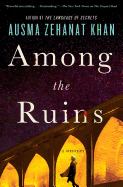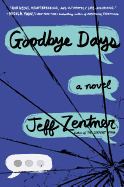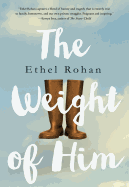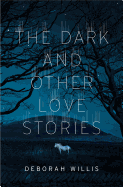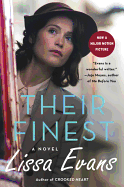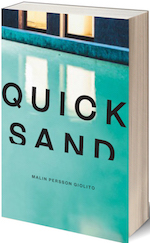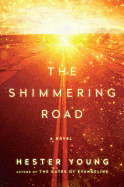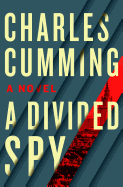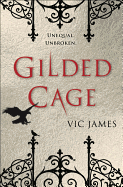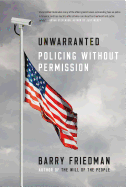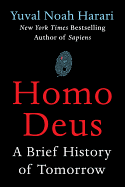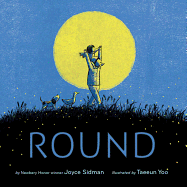Tuesday, March 7, 2017
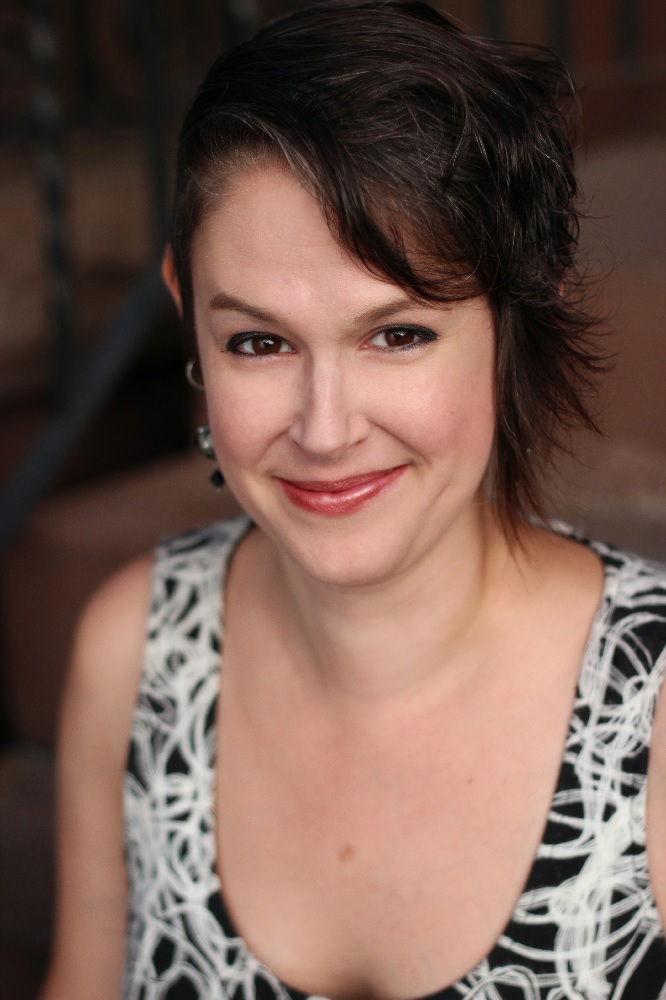 |
|
| photo: Gabriel Lehner | |
Lyndsay Faye is the author of five novels, including Dust and Shadow, featuring the inimitable Sherlock Holmes and Dr. Watson. She returns to these beloved characters in the 15 stories in The Whole Art of Detection (Mysterious Press).
Lyndsay Faye has been reading Sherlock stories since she was 10. "I loved them," she says, "and then I never actually stopped reading them. Lacking the Internet, it wasn't until I was a teenager that I discovered there was such a thing as pastiches and fan fiction out there. Then I read as much of the non-canonical material as I could find--probably thousands of stories at this point, no joke.
All that absorption of matters Holmesian means I can tell within about two paragraphs whether a new story's voice is going to work for me. I wasn't trained as a writer--I was a professional actress. So I studied how to mimic syntax and accents and characterizations. At a certain point, I picked up a fresh new Sherlock Holmes paperback at Borders and thought, 'I could do that.' "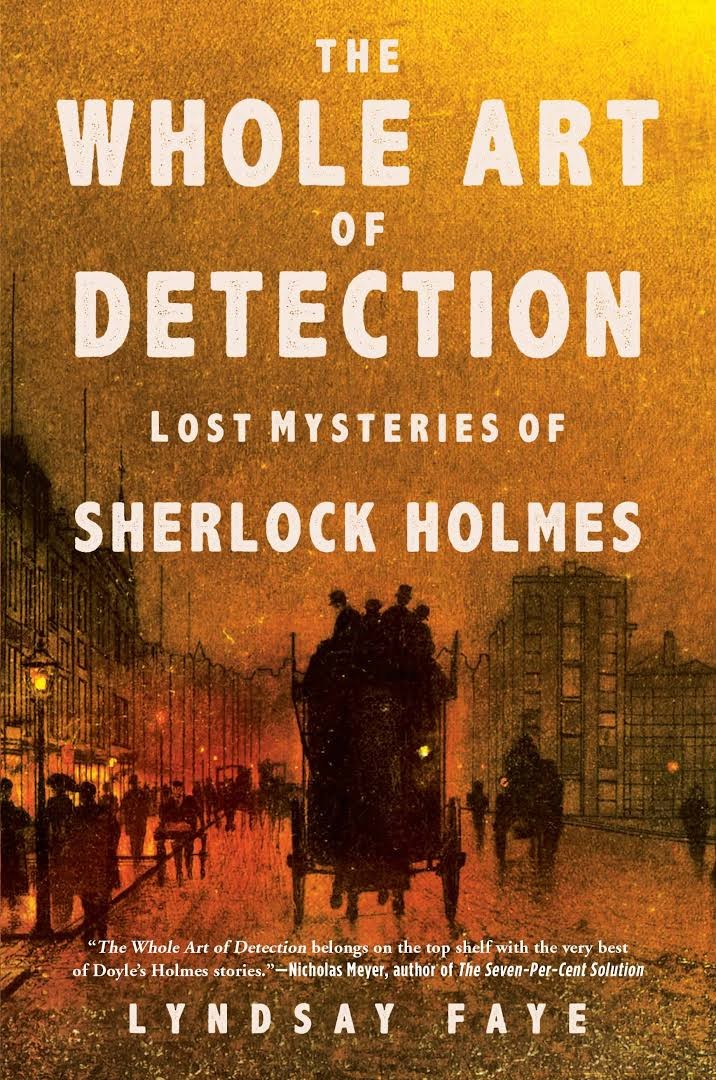 Her experience writing Holmes material gave her new sympathy for Arthur Conan Doyle "for occasionally being a bit repetitive." She explains: "Coming up with solvable but grotesque circumstances in which to land Holmes, over and over again, is extremely challenging. Doyle famously hated it. I've only done 15, not 60, and my cap is entirely off to him."
Her experience writing Holmes material gave her new sympathy for Arthur Conan Doyle "for occasionally being a bit repetitive." She explains: "Coming up with solvable but grotesque circumstances in which to land Holmes, over and over again, is extremely challenging. Doyle famously hated it. I've only done 15, not 60, and my cap is entirely off to him."
She's still writing in the genre, though, despite the challenges. "But," she notes, "I've started branching out into narrators other than Watson and Holmes--peripheral characters who knew them to varying degrees and offer a fresh point of view. It's the perfect way to challenge myself without leaving Victorian London. I'll never tire of the Great Detective and the Good Doctor." --Kerry McHugh, blogger at Entomology of a Bookworm
The Weight of Him
by Ethel Rohan
How does a father cope with the suicide of his firstborn? Big Billy Brennan, loving husband and father of four, won't accept his family's efforts to move on from grief. He knows the townspeople, with their "small mouths and sour faces," are whispering and gossiping in the Irish village where his house abuts the family farm. Why did 17-year-old Michael cut down the clothesline and hang himself in the woods? Nobody knows, and in Ethel Rohan's debut novel, The Weight of Him, Billy takes bold steps as he tries to salvage some good from the tragedy.
Billy acknowledges that, massively overweight, he was "killing himself, not nearly as swiftly or brutally as Michael but killing himself just the same." Shy as a boy and scorned by his father, he'd taken refuge in food, hitting 250 pounds at 15. Loaded burgers and "thick, salted, vinegar drenched chips" are a continuing comfort. By the time he resolves to diet to spare his family "another premature funeral," he weighs 401 pounds. When his children's school has a walk-a-thon, Billy is inspired--why not gather pledges for each pound he loses, donate the money to suicide prevention efforts and hold a march to draw attention to the cause?
While Billy is struggling to drop the weight, enduring his family's horror at the attention he's drawing and grieving Michael's death, his determination and success build slowly. The omniscient narrator reveals the alienation of Billy's youth and his growing self-confidence. He is an engaging character as he heals and perseveres, and his family's sorrow eases as they rally to support him. While the grief over Michael's death never subsides, Billy's campaign infuses his story with love and hope. --Cheryl Krocker McKeon, manager, Book Passage, San Francisco
Discover: An Irishman resolves to lose weight as a fundraiser for suicide prevention following his teenage son's death.
The Dark and Other Love Stories
by Deborah Willis
Love often has a dark side. In The Dark and Other Love Stories, her second collection, Deborah Willis (Vanishing and Other Stories) explores this duality in 13 exceptional tales infused with foreboding and simmering sensuality.
The title story accompanies summer campers sneaking out to swim naked in a moonlit lake. In "Welcome to Paradise," two teenage girls break into neighbors' homes, read Cosmopolitan and flirt with the pizza delivery boys. While trick-or-treating with his son dressed as a Transformer, an alcoholic father falls prey to latent vengeful tendencies and destruction in "I Am Optimus Prime."
"Hard Currency" finds a famous novelist hiring a prostitute to accompany him on a pilgrimage to his deceased grandmother's former home in Russia. "A boy can be in love with his grandmother's stories, with his grandmother herself, in her apartment off Moskovskaya, eight floors up. Because when his grandmother talked, ghosts appeared, witches had teeth of iron, and geese could lift and carry little boys away in their beaks."
"Girlfriend on Mars," among the best of this stellar collection, uses dark humor to illuminate reality television's seductive manipulation, and its impact on a dysfunctional couple running a marijuana plant operation. (The opening line: "Amber Kivinen--drug dealer, lapsed Evangelical Christian, my girlfriend of twelve years--is going to Mars.")
Set mostly in Canada, Willis's stories examine the element of darkness and love within the prism of relationships. Through flawed, memorable characters that will resonate with her readers, she illuminates how easy--and possible--it can be to simultaneously love and loathe the same person. --Melissa Firman, writer, editor and blogger at melissafirman.com
Discover: Thirteen irresistible short stories in Deborah Willis's engaging collection explore the dark side of love.
Their Finest
by Lissa Evans
In 1940, as Nazi bombs fall on Great Britain and soldiers deploy for war, the Ministry of Information brings together a group of four misfits to make a feature-length propaganda movie. While the best and brightest of Britain are busy fighting the war, Lissa Evans's amusingly hapless characters in Their Finest are unprepared for their task: to make a film both to entertain British and American audiences and to promote the war effort. They are Ambrose Hilliard, an actor past his prime who insists he is still a leading man; Catrin Cole, a young writer; Edith Beadmore, a quiet and meticulous seamstress; and Arthur Frith, a shell-shocked soldier recently given the ambiguous title of Special Military Advisor. Despite the war and its effects, each is mostly concerned with personal long-term goals; for them the war is either an opportunity or an inconvenience.
On location, they come to understand the hard work behind the camera, and as they become involved, their sense of life before the war becomes more distant. Drawn together to play-act a largely fabricated moment from the war, their interactions change them. The narcissism that previously impeded Ambrose's ability to see the world begins to fail him. Catrin's writing opens her life to unimagined possibilities. After losing her home to a bomb, Edith struggles to find a more daring self. Being away from the war front gives Arthur time to understand that he's still alive. At first entertainingly clumsy, each character begins to step beyond their place of comfort and embrace the unpredictability and inconstancy of their wartime lives. This transformation gives Evans's comical story an earnest and contemplative heart. --Justus Joseph, bookseller at Elliott Bay Book Company
Discover: An endearing group of oddball characters attempt to make a feature film to bolster morale during World War II.
Quicksand
by Malin Persson Giolito, transl. by Rachel Willson-Broyles
"It smells like rotten eggs. The air is hazy and gray with gunpowder smoke. Everyone has been shot but me. I haven't got even as much as a bruise."
Malin Persson Giolito's Quicksand opens with a tableau, featuring Dennis, a fat teenager from Uganda; Samir, an academic overachiever; Christer, the homeroom teacher; Amanda, "all cashmere, white gold, and sandals"; and the son of the richest man in Sweden, cradled in the narrator's lap. "People like us don't usually spend time together. Maybe on a Metro platform during a taxi-driver strike, or in the dining car on a train, but not in a classroom."
Maja Norberg is on trial for her role in a school shooting that left her boyfriend and her best friend dead, among others. She has been waiting in isolation in a women's prison for nine months. Media attention has been intense and frenzied: Maja comes from the privileged upper class of Djursholm, a wealthy suburb of Stockholm. She was a good girl, reasonably well-liked and a good student. She has been portrayed in the news as a poor little rich girl, self-centered to the point of disregarding the value of human lives.
In flashback chapters, Maja's story slowly becomes clearer. Bit by bit, her relationships with her alleged victims are revealed. In two sections--one handling the trial and the other leading up to the shooting--Maja's first-person perspective offers a shifting view of the world. "I read somewhere that 'the truth is whatever we choose to believe.' Which sounds even more insane, if that's even possible. Like someone can just decide what's true and what's false?"
Quicksand is Persson Giolito's fourth novel and her first to be translated from Swedish into English. Translator Rachel Willson-Broyles smoothly renders Maja's voice, by turns cynical and yearning, hard-edged and vulnerable. Paired with a knack for deadpan dialogue, this voice presents a realistic impression of an 18-year-old woman, one charged with the most heinous crime in her country's recent memory. The strength and poignancy of Maja's nuanced voice command sympathy, even though she has--perhaps--done terrible things.
The central question of the novel is, of course, Maja's guilt or innocence. Although the trial itself shapes the narrative, she is reluctant to make a claim about her involvement in the shooting, even in thought. Readers must follow along slowly in dual timelines, trying to determine the shifting truth for themselves. Meanwhile, Maja's story imperceptibly expands to take on larger questions and issues: class and immigration, race and racism, criminal justice systems and the media, the consequences of wealth and leisure, love and obsession, what is owed by a parent to a child. The false dichotomy of guilt and innocence plays a central role. It is to Persson Giolito's great credit that such weighty topics move smoothly through a plot that is taut and relentless, even as its protagonist passes monotonous days in a prison cell.
Because Maja's traumatized, often apathetic perspective offers the reader's only view of this story, characterization takes place slowly and leaves holes. Her family and classmates matter only as they matter to her. Dennis, her boyfriend's drug dealer, is of little value. Amanda is both an intimate and an empty-headed cipher--Maja's best friend, like a sister, but alternately familiar and remote. Maja has a real sister, too, who plays a very different role; her parents, unsurprisingly, are due for a certain amount of Maja's scorn. Sebastian's character is at the crux of the plot's mysteries, standing in for all the contradictions implied by wealth, success and dissatisfaction. Maja and Sebastian's romance begins with 15 days in the Mediterranean on a yacht almost 60 meters long, and she comments more than once on "the surreality of it all, that world of postcard-blue and sparkling sunshine and plink-plonk manicures." This surreality drives home that sparkle and money don't buy happiness. Maja will ponder that lesson and others as the trial progresses, as the reader gradually puts together the pieces of her story and as her fate looms.
Quicksand is a novel focused on a school shooting, but in no way feels hackneyed or dependent on its timeliness. In fact, it's not really about a school shooting at all. It's about larger abstractions, like loyalty and codependence, love and guilt, the incredibly complicated business of being a teenager, criminal justice systems (Sweden's in particular, and as a concept), the role of the media and what a parent's job entails. Expert dialogue and irresistible momentum make an all-too-realistic story come breathing off the page. It's a novel that demands compassion, and an appreciation for the fine gradations of situations that tend to be treated as black and white. Part courtroom thriller, part introspection, Quicksand is pulled tight throughout by the suspense, not only of Maja's verdict, but of the elusive "truth" of what really happened in the classroom that day. --Julia Jenkins
Mystery & Thriller
Among the Ruins
by Ausma Zehanat Khan
On leave from the Canadian Community Policing department, Inspector Esa Khattak has set off for an unlikely vacation destination: Iran. Using his Pakistani passport to gain entrance to the closed-off country, Khattak schedules a few weeks of rest and prayer to recover from stressful events at home. However, when he is approached by a fellow Canadian for assistance tracking down the murderers of a prominent Canadian-Iranian filmmaker, his plans for peace and relaxation are disrupted. Though Khattak has no jurisdiction in Iran--and is in fact risking his life by getting involved--he is sucked into the mystery of the woman's brutal death, aided by long-distance support from his partner back in Canada.
Among the Ruins is the third in Ausma Zehanat Khan's Rachel Getty and Esa Khattak series (those new to the characters will have no trouble following this novel, despite a few references to past stories). Khan (The Language of Secrets) weaves together multiple stories, building from basic political intrigue to a multinational plot involving heists, murders and cover-ups. These capers are kept firmly grounded in Khan's depiction of Iran, a country full of vast contradictions, extreme beauty, rich history and violent human rights violations. "What the world thinks of Iran seems ludicrous when you deal with people in your daily interactions," Khattak is told. It is those very people--and their stories, both beautiful and horrific--that center Among the Ruins, an accomplished, multi-layered mystery from start to finish. --Kerry McHugh, blogger at Entomology of a Bookworm
Discover: Detective Getty and Inspecter Khattak must solve the brutal murder of a prominent filmmaker in Iran.
The Shimmering Road
by Hester Young
The stunning Southern gothic style of Hester Young's debut, The Gates of Evangeline, is nowhere to be found in The Shimmering Road. But that shouldn't deter any readers from snatching up this strong second installment of journalist Charlie Cates's story. Young incorporates a chillingly complex plot, evocative sense of place and mystically engaging characters to lure her audience into this captivating thriller steeped in spine-tingling action.
While The Shimmering Road is the second novel to feature Charlie Cates, it is essentially self-contained. She and her partner, Noah Palmer, are living in Texas as they nervously await the birth of their daughter. But a dark cloud hovers over what should be a happy occasion because Charlie is experiencing violent premonitions in which she and her unborn infant are murdered. Due to her unusual supernatural gift, both parents know this isn't just prenatal stress; it is legitimate cause for concern. And in Young's deliciously terrifying imagination, it's only the beginning of Charlie's nightmare. She learns her mother, who abandoned her as a small child, has been shot to death, leaving behind a granddaughter Charlie knew nothing about. The couple head to the southern Arizona desert in their search, but discover much more than Charlie's orphaned niece. And it could lead them straight into Charlie's nocturnal portent.
Young proves she's no one-hit-wonder with The Shimmering Road. This encore truly shines. --Jen Forbus, freelancer
Discover: Mother-to-be Charlie Cates attempts to track down her orphaned niece despite her vision of a violent death for her and her unborn child.
A Divided Spy
by Charles Cumming
Thomas Kell thought he was done with spying. In the wake of the mission that killed his fiancée, Rachel, he has left SIS (the British secret service) behind, and is living a quiet, solitary life in London. But then chance drops a ripe possibility in his lap: one of his former colleagues is on vacation in Egypt when he spots Tom's nemesis, Alexander Minasian, the SVR (Russian secret service) agent who carried out Rachel's murder. And, unbelievably, Minasian appears to be in a relationship with an older German man named Bernhard Riedle.
Tom knows that because of the homophobic atmosphere within the SVR, if he can catch Minasian with Riedle, he'll have a means of blackmail to find out who ordered Rachel's killing. Tom also knows that his former bosses at SIS will not approve of this plan, so he goes undercover, moving into the same apartment building as Riedle. The stakes climb higher as Tom's deception grows, but when he finally comes face to face with his nemesis, the encounter leaves Tom reeling as Minasian reveals secrets he never could have guessed.
Charles Cumming (A Foreign Country, The Trinity Six) creates believable threats and details the intricacies of spycraft as Kell and Minasian negotiate how to meet each other without either of their governments becoming aware of their clandestine activities. Fast-paced and lethal, A Divided Spy is perfect for fans of Robert Ludlum or John le Carré. --Jessica Howard, blogger at Quirky Bookworm
Discover: This thriller takes former SIS agent Thomas Kell across Europe in his quest to uncover the truth about his fiancée's death.
Science Fiction & Fantasy
Gilded Cage
by Vic James
Vic James's Gilded Cage imagines an alternate version of England, in which the monarchy's power is derived from Skill (a magic inherent to those of noble birth). Social order requires every commoner to serve 10 years as a slave in his or her lifetime. Hoping to avoid the miserable conditions of the country's slave towns, the Hadley family arranges to spend their tenure serving on the estate of one of the most powerful ruling families in England. But they soon learn that even a "gilded cage" is a cage, and a lack of freedom is nothing to be taken lightly. Their circumstances get more complicated when their teenage son, Luke, is sent to serve his 10 years in a slave town instead of with his family. There he falls in with a group that makes him question everything he once thought reasonable about the concept of slave years.
Gilded Cage pushes the concept of inequality to its extremes. The upper classes are elitist and classist; they look down upon those without Skill in every way, shape and form. Meanwhile, slaves are mistreated, raped, beaten, poorly fed and otherwise suppressed. But within this black-and-white context of good and evil lies a surprisingly nuanced and captivating story of what it takes to fight for freedom and justice against a cruel and unfair system. Those seeking a neat and tidy conclusion will be disappointed, for Gilded Cage ends on a cliffhanger, perfectly setting James up to continue this promising fantasy series. --Kerry McHugh, blogger at Entomology of a Bookworm
Discover: In an alternate version of England, the monarchy derives its power from magic in this start to a promising fantasy series.
Current Events & Issues
Unwarranted: Policing Without Permission
by Barry Friedman
To get a feel for the state of U.S. policing, one need only look at images of heavily armed Boston police in armored BearCats swarming their sheltered-in-place city during the 2013 bomber manhunt. Or watch 2014 footage of police in Ferguson, Mo., lined up in SWAT body armor and riot helmets, brandishing assault rifles and flash-bang grenades behind military MRAP vehicles to face off against citizens. How did Andy Griffith turn into Sylvester Stallone? In Unwarranted, a measured, commonsense, sometimes even breezy study of current policing, New York University School of Law professor and noted constitutional law pundit Barry Friedman (The Will of the People) reminds us: "The authority to use force on citizens and to conduct surveillance of them... are the most awesome powers we grant any public servants.... The real problem with policing is not the police; it is us."
Frightening as Unwarranted sometimes is, Friedman's analysis is not without hope and concrete suggestions. He puts much of the burden on courts to take a firmer stand prohibiting police from bending the Constitution without specific authorization from legislatures. Elected representatives also need to step up and draft laws that directly outline the allowed rules for enforcement rather than turn these decisions over to appointed agencies. The police must be more transparent and willing to take direction from citizens. Unwarranted is an accessible and important book at a time when a police force armed to the teeth and a vast government surveillance network have become the norm. --Bruce Jacobs, founding partner, Watermark Books & Cafe, Wichita, Kan.
Discover: Constitutional law guru Barry Friedman unravels the current state of out-of-control policing in a provocative overview and remedy.
Science
Homo Deus: A Brief History of Tomorrow
by Yuval Noah Harari
In Homo Deus, Yuval Noah Harari's thesis is that an emerging religion he calls Dataism--which "collapses the barrier between animals and machines" as it "expects electronic algorithms to eventually decipher and outperform biochemical algorithms"--will gradually overtake, and perhaps supplant, humankind. This new faith, fed by the ceaseless flow of information from our smartphones, computers and devices yet unimagined, will supersede the worldview of liberal humanism--with its emphasis on the exercise of individual free will--that emerged in the late 18th century and eventually triumphed in the 20th over the ideologies of Nazism and Communism.
Homo Deus shares DNA with the work of writers like Jared Diamond (Guns, Germs, and Steel) in its proclivity for synthesizing large swaths of history, while drawing freely from other disciplines in both the humanities and sciences. It's emphatically a work for the general reader eager to grapple with big ideas, but who is equally hungry for context for today's headlines. Harari possesses a well-stocked mind and is an engaging stylist skilled at neatly summarizing arguments--like his contention that overeating is more of a threat to humankind than violence--with memorable, epigrammatic sentences: "Sugar is now more dangerous than gunpowder."
Harari (Sapiens) is neither advocate nor alarmist, but anyone who engages seriously with this challenging work should come away from it with ample motivation to think more deeply about what's around the next bend in the river of human history. --Harvey Freedenberg, attorney and freelance reviewer
Discover: Historian Yuval Noah Harari envisions a data-driven future in which immortal beings may seek to attain the status of divinity.
Poetry
There Are More Beautiful Things Than Beyoncé
by Morgan Parker
"Okay so I'm Black in America right now and I walk into a bar." This is classic Morgan Parker (Other People's Comfort Keeps Me Up At Night), who tackles weighty issues with deft wit and powerful candor, as in this wry line from the first poem in There Are More Beautiful Things Than Beyoncé, Parker's insightful and irreverent collection of poetry exploring race, sex, womanhood and popular culture.
Parker's poems turn a sharp eye toward a broad collage of subjects, including her muse Beyoncé, the Obamas and historical figures like the so-called Hottentot Venus. Topical references abound, as do nods to other poets. Her pop-culture reimagining "Freaky Friday Starring Beyoncé and Lady Gaga" precedes a riff on Wallace Stevens in "13 Ways of Looking at a Black Girl." In "We Don't Know When We Were Opened (or, The Origin of the Universe)," Parker echoes Gwendolyn Brooks: "We better homes and gardens./ We real grown. We garden of soiled panties."
Parker borrows one poem's title from Beyoncé's husband, Jay-Z, "99 Problems," compiling a literal problem list. Among them: "16. Oppression," "36-42. American History" and "86. My dog eats a lipstick." Parker uses her signature humor throughout, but the laughs are never cheap; the stakes are too high. Parker begins "White Beyoncé" with the droll introduction "Sneezed on the beat/ and blessed herself," but slays in the closing lines: "Her daughter learns about beauty/ Discovers nothing surprising."
This collection pairs well with Beyoncé's music, but Parker's poems sing just as impressively unaccompanied. --Katie Weed, freelance writer and reviewer
Discover: Parker's bold, brilliant and biting poetry explores race, sex and womanhood in contemporary culture.
Children's & Young Adult
Goodbye Days
by Jeff Zentner
It's tragic enough that 17-year-old Carver Briggs's friends Mars, Eli and Blake were killed in a driving-while-texting car accident, but Carver feels responsible: it was his text that Mars was responding to when the accident happened. ("Where are you guys? Text me back.") Wracked with grief, terrified by the potential lawsuit against him and bewildered by his new closeness with Jesmyn, Eli's girlfriend, Carver is foundering: "I once thought heartbreak was akin to contracting a cold or becoming pregnant. It only comes one at a time." But it turns out your "love heart, separate from your grieving heart, or your guilt heart, or your fear heart" can all be broken in their own way.
When Blake's grandmother asks Carver to take part in a "goodbye day" with her--a chance to do all the things they imagine Blake might have wanted to do on his last day--a seed is planted. Carver begins to wonder if it wouldn't be helpful for each of the three grieving families to have a goodbye day to help them move forward.
In his gorgeous, devastating YA novel, Jeff Zentner (The Serpent King) explores the tormented inner life of a teenager in crisis. Although many will never experience tragedy on the scale Carver does, virtually everyone at some point goes through the kind of hardship that can drive a person deeply inward. With the help of a caring, funny therapist, memories of his sweet, smart and goofy friends, and Jesmyn, Carver struggles to find a way out of pure despair by recognizing that the living "still have to live." --Emilie Coulter, freelance writer and editor
Discover: Seventeen-year-old Carver grapples with grief, guilt, fear and love in this exquisite and tragic YA novel by Jeff Zentner, author of The Serpent King.
Round
by Joyce Sidman, illus. by Taeeun Yoo
The simplest things can bring the greatest pleasure, as small children know intuitively. Newbery Honor poet Joyce Sidman (Dark Emperor and Other Poems of the Night; Winter Bees) and illustrator Taeeun Yoo (Tua and the Elephant) understand this, too, as reflected in their exquisite, perfectly square book about round things. A dark-haired little girl who favors polka-dotted overalls and bare feet (or pink flowered boots) talks about the many wonderful, almost magical attributes of her favorite shape: "I love when round things/ pop up quickly... / and last only a moment," she says, while blowing bubbles in a meadow. And, while counting rings on a tree stump and finding eensy ladybug eggs on a leaf: "I love round things when they're hidden/ and you have to discover them./ Some hold secrets inside./ Some are almost too tiny to see." She even finds herself: "I can be round, too... / in a circle of friends/ with no one left out./ Or, I can curl by myself/ in a warm, round ball."
Yoo's artwork in Round--mixed media with printed texture--is full of warm reds and yellows and soft blues and greens. A white duck, a spotted dog and a man--perhaps her dad--accompany the sphere-seeking girl on every outdoor adventure. Young readers will love finding the round things on each spread: a sunflower's center, a balloon, spots on mushrooms, spirals on a turtle's back. Encircled in her father's arms, the girl completes the cycle with the same words she started with: "I love round things." An author's note explains why so much in nature is round. Lovely. --Emilie Coulter, freelance writer and editor
Discover: This early-concept book about "roundness" by Newbery Honor author Joyce Sidman will charm readers just starting to grapple with shapes.


